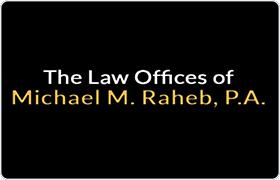Englewood Criminal Lawyer, Florida
Sponsored Law Firm
-
 x
x

Click For More Info:
-
Law Offices of Michael M. Raheb P.A.
2423 First St Fort Myers, FL 33901» view mapCriminal Defense Law Legal Problem? Call Us 24/7
At the Law Office of Michael M. Raheb, we strive to ensure each of our clients receives the individual attention and representation necessary to obtain an optimal outcome.
800-890-8981
Kerry Ellen Mack
Lawsuit & Dispute, Criminal, Insurance, DUI-DWI
Status: In Good Standing *Status is reviewed annually. For latest information visit here Licensed: 44 Years
Mark A Creech
Criminal, Divorce, Real Estate, Landlord-Tenant, Family Law
Status: In Good Standing *Status is reviewed annually. For latest information visit here Licensed: 18 Years
 Michael M. Raheb Fort Myers, FL
Michael M. Raheb Fort Myers, FL Practice AreasExpertise
Practice AreasExpertise